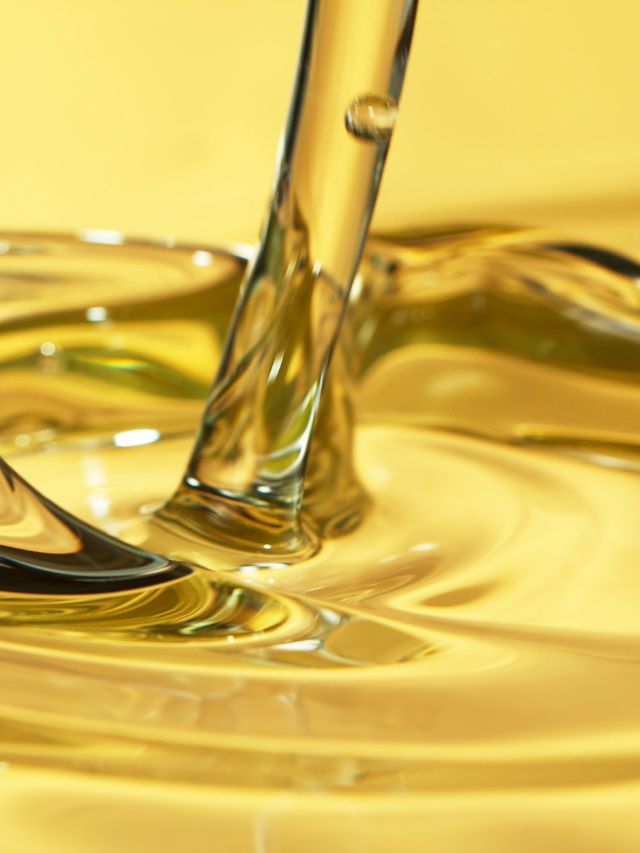
Introduction
If you’re expecting me to disclose the brand name of the best MCT oil, you’re mistaken. However, I’ll provide you with all the knowledge you need to help you decide the best oil for yourself.
You’ve perhaps heard that ketones are fantastic when you’re on keto and that they’re the best thing for helping you boost ketones and burn fat. But how does it achieve that? Do you fully understand what is MCT oil and what it does? Once you grasp these concepts, you’ll also know what is MCT Oil and which one is the best and why and when to use it. This understanding will help you reach your goals, save money, and improve your health.
What is MCT Oil?
MCT stands for medium-chain triglycerides. But what precisely does ‘medium’ mean in this perspective? Essentially, it refers to a length that’s neither too long nor too short. ‘Chain’ signifies a sequence of carbon atoms, and ‘triglyceride’ indicates three of these chains – three fatty acids linked to a glycerol backbone. This is the fundamental structure of most fats in your body and the fats you use; it’s how they are naturally organized.
In terms of ‘medium length,’ it largely refers to carbon chains containing 6 to 12 carbons. For example, 6 carbons are named caproic acid, 8 carbons are identified as caprylic acid and 10 carbons are called capric acid. These are the primary ones we’re interested in and will talk over in detail. Some descriptions of MCT also include lauric acid when it has 12 carbons. Nevertheless, we won’t focus on lauric acid because it possesses properties that don’t align with our objectives when utilizing MCT oil.
Your Guide to Finding The Best Option
When it comes to what is MCT Oil and which one is the best, you’ll often find that it contains roughly 60% caprylic acid (C8) and about 40% capric acid (C10). This blend is the sweet spot for reaping the most benefits. Caprylic acid (C8) is like a quick energy booster as it easily converts into ketones, giving you a rapid source of energy. On the other hand, capric acid (C10) offers more of a slow and steady kind of energy and brings along its own set of health perks. We should steer clear of MCT oils that don’t come close to this ratio. So, when you have this perfect balance, you’re looking at an effective dietary supplement that can support various aspects of your well-being.
Why MCT Oil Matters?
Why are we discussing MCT oil at all? Most of us want to lose weight, want to lose fat. And we have too much fat because there’s an unevenness between fat storage and fat burning. The reason for this imbalance is that we have extreme levels of insulin. Insulin is a hormone that plays a major role in storing fat. When we eat in a way that leads to high insulin levels, we cannot at the same time burn fat. You probably already know that carbohydrates are the primary culprits in increasing insulin levels the most.
The Role of Insulin and Carbohydrate Dependence
However, carbohydrates do something else as well; they create dependence. Many people claim that carbs are the preferred fuel because they are burned first. However, this oversimplifies the process for the reason that carbs also elevate blood sugar levels, which can be unfavorable to the body. The body must focus on dealing with elevated blood sugar before starting to use fat for energy. If we continue to use more carbs before we ever tap into fat stores, we become dependent on carbs.
Transitioning to a Fat-Adapted State
We shape our metabolism; we follow all the paths related to carbs and curb all the paths related to fat burning. So, in a sense, the body fails to recall how to burn fat. Now, you must have heard about the theory of transitioning to a fat-adapted state by going keto and low carb. You cut out all the carbs, and your body thinks it just got deprived of its primary fuel source, carbohydrates. You’ve taken them all away, so there’s no fuel, and you experience fatigue, brain fog, and nausea – all these symptoms together known as the ‘Keto flu.’ Your body is slowly adapting during this period. It’s searching for another possibility, but it takes time to develop ketones for fat burning and to supply the brain with ketones but in the meantime, you may feel horrible.
Ways to Introduce Ketones into Your System
Let’s explore various ways to get ketones into your system.
First Method
The first method is to go low carb, adopt a keto diet, or fast. When you’re fasting, you consume very few carbs because you’re not eating anything.
Second Method
The second option is to purchase exogenous ketones. These are available in powder or pill form and work remarkably fast. When you consume them, your body takes them in rapidly, and you have ketones in your circulation. Nonetheless, there exist a few drawbacks associated with this approach. First, they can be somewhat costly. Second, they don’t support your body to produce its own ketones because you’re essentially supplying them in their final form. This means there’s no incentive for your body to generate ketones naturally.
Third Method
The third one is to take MCT Oil. This approach is nearly as fast as using exogenous ketones, but it has several benefits. It’s cost-effective, and it still encourages your body to switch MCT into ketones. By using the MCT oil, you encourage and support your body to produce ketones.
The Benefits of MCT Oil
Since now we know what is MCT oil, what are the advantages of MCT oil? The first one is improved brain function because your brain requires energy. If you’re insulin resistant or if your glucose declines, your brain can be left starving, and ketones provide an excellent alternative. Raising ketones can lead to increased brain energy. In addition, it raises the overall energy level of your body and achieves this without adding any carbohydrates or insulin, which can also lower your blood sugar and control hunger.
MCTs can also help restock energy and reduce lactic acid after exercise, resulting in faster recovery. They can improve cardiovascular function because the two organs that most readily use ketones for fuel are the brain and the heart. Likewise, MCTs possess some antimicrobial and antifungal properties, primarily due to lauric acid, although it doesn’t convert to energy as effectively.
Transition to Ketosis and Rapid Energy Production
When you consume long-chain triglycerides (regular fats), they don’t enter the bloodstream immediately. Instead, they pass through the lymph system, where your immune system checks them for safety before permitting them into the blood. In contrast, MCTs, being smaller and simpler molecules, bypass the lymph system and are absorbed directly into the circulation. From there, they go to the liver, which reformats them for circulation to produce energy. This means that MCTs are nearly as fast as carbohydrates in terms of energy production. Long-chain triglycerides, however, are delayed by several hours, typically 2 to 4 hours, depending on your diet.
Frequently Asked Questions (FAQs)
What is MCT Oil and How is It Structured?
MCTs, or medium-chain triglycerides, are a specific type of fat with medium-length carbon chains, typically containing 6 to 12 carbons. Think of them as three fatty acids hanging out together on a glycerol backbone. We’re mainly interested in MCTs with 6 (caproic acid), 8 (caprylic acid), and 10 (capric acid) carbons. Some include lauric acid with 12 carbons, but we won’t dive into that because it behaves differently.
Why Is MCT Oil Worth Considering?
MCT oil is worth a look because it can assist with weight and fat loss. Many times, extra fat accumulates due to wonky insulin levels. High insulin, often spurred by excessive carb intake, makes it tough to burn fat. MCT oil helps by encouraging the body to use fat for energy, which is a game-changer for weight management.
What’s the Deal with Insulin and Carbs in This Context?
Insulin plays a starring role in storing fat, and carbs sends insulin levels soaring. But here’s the twist: Carbs can be clingy. They make our bodies rely on them as the main fuel source, making it harder to burn fat. By cutting down on carbs, you can transition your body into a state where it’s more comfortable burning fat fuel.
How Can You Get Ketones into Your System?
You can opt for a low-carb or keto diet, where you eat fewer carbs and more fats. Exogenous ketones come in handy powders or pills and provide a quick ketone boost. However, they don’t nudge your body to make its own ketones. MCT oil is a cost-effective option. It not only gives you speedy energy kick but also encourages your body to produce ketones naturally.
What Benefits Does MCT Oil Offer?
MCT oil has several advantages. It enhances brain function and supplies the energy your brain needs. You experience increased overall energy without affecting blood sugar or insulin. It facilitates faster recovery and reduces lactic acid buildup after exercise. MCT oil supports cardiovascular well-being.
How Does MCT Oil Speed Up Energy Production?
MCTs don’t waste time. They skip the line at the lymph system and head straight to the liver, where they get transformed into energy pronto. This process is much faster than how our bodies deal with regular fats (long-chain triglycerides), which can take hours to enter circulation, depending on your diet.
For general inquiries, feedback, questions, and suggestions about our content, please feel free to – Contact Us
